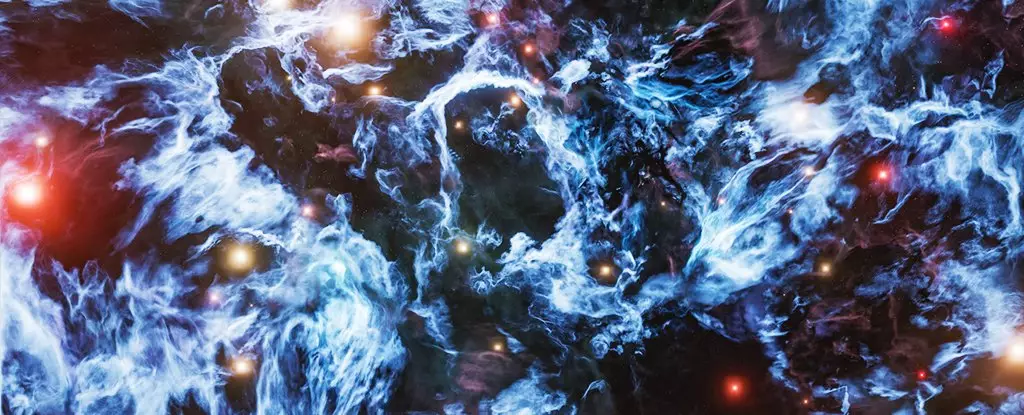Over the past century, Albert Einstein’s theory of general relativity has stood the test of time, providing remarkable accuracy in understanding gravity at various scales. However, as technology advances and scientists delve deeper into the mysteries of the cosmos, discrepancies in Einstein’s theory are beginning to surface. This article explores a recent study that challenges the assumptions of general relativity and its implications for our understanding of the universe.
Recent research conducted by a collaboration between the University of Waterloo and the University of British Columbia has unearthed a puzzling “cosmic glitch” in Einstein’s theory of general relativity. This discrepancy was observed at vast scales, spanning billions of light-years across clusters of galaxies. While general relativity remains accurate on smaller scales, the observed deviation at larger scales hints at a potential limitation in Einstein’s theory.
If this cosmic glitch is confirmed, it could offer insights into some of the most perplexing mysteries of the universe. Scientists have long grappled with conflicting measurements, such as the Hubble Tension, which pertains to the varying expansion rates of the universe. By considering a 1% gravity deficit at large scales, researchers speculate that this glitch could help reconcile these discrepancies and refine our understanding of cosmic phenomena.
The study’s findings suggest that a reevaluation of Einstein’s theory of general relativity may be necessary to accommodate the observed cosmic glitch. While a 1% adjustment might seem minor, it signifies a potential need for revisiting the fundamental principles of gravity at cosmic scales. This challenge to general relativity prompts scientists to explore alternative explanations and think beyond conventional models.
Looking ahead, researchers plan to analyze data from the Dark Energy Spectroscopic Instrument (DESI) to further investigate the effects of dark energy on the universe’s expansion rate. By probing the connections between dark energy and gravity glitches, scientists aim to deepen their understanding of these cosmic phenomena. While the outcomes remain uncertain, the quest for unraveling the mysteries of the cosmos drives scientists to embrace unconventional ideas and approaches.
The discovery of the cosmic glitch poses a significant challenge to the prevailing theory of general relativity, sparking a fresh inquiry into the nature of gravity at cosmic scales. As scientists push the boundaries of exploration, the quest for understanding the universe’s fundamental laws continues to evolve, inviting us to rethink established paradigms and embrace the unknown. While Einstein’s legacy endures, the cosmic glitch opens new pathways for exploration and discovery in the ever-expanding realm of cosmology.


Leave a Reply